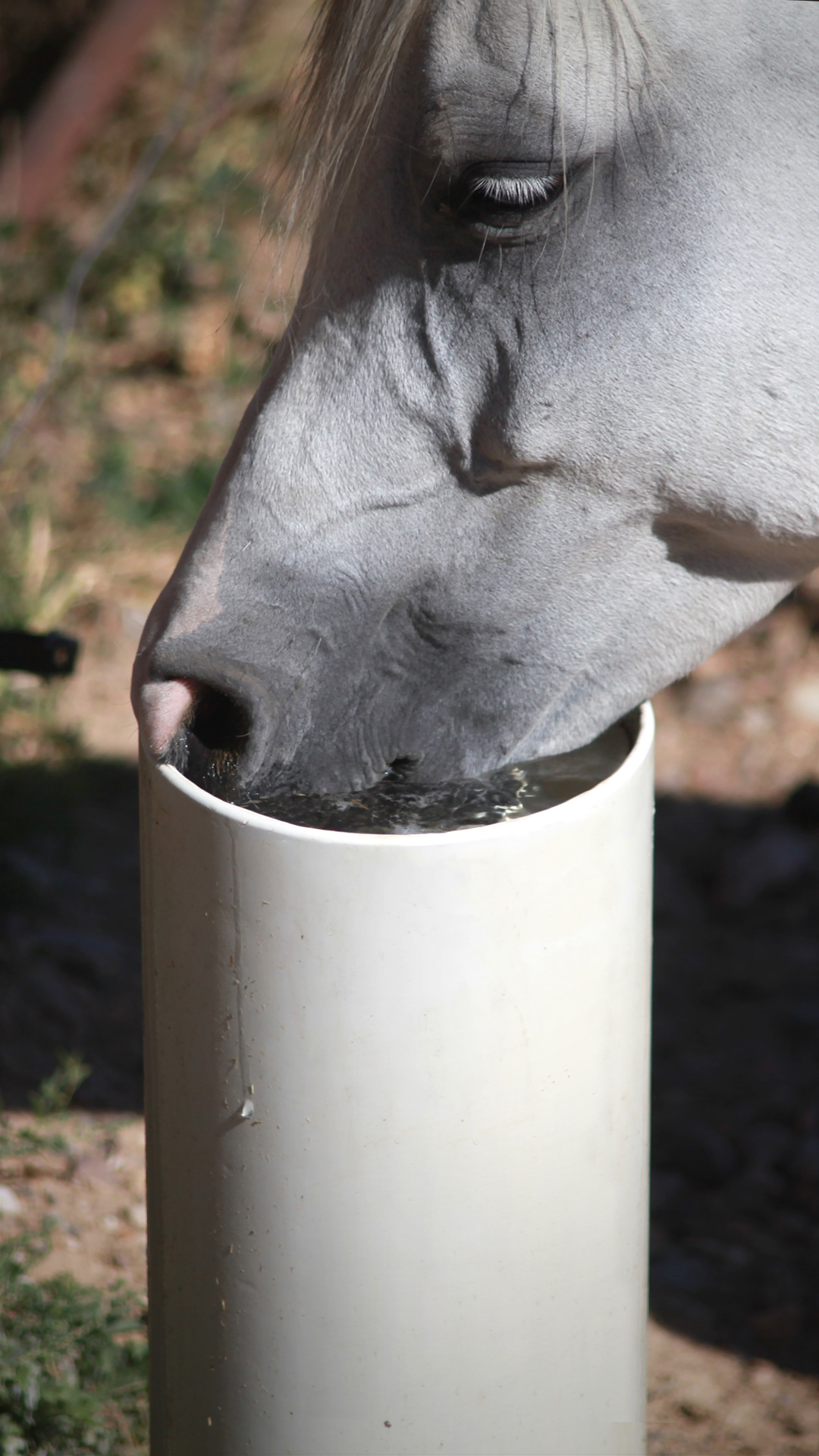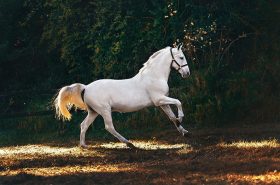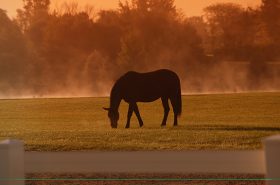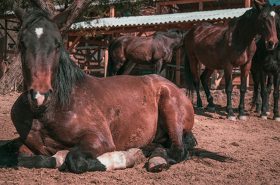The average horse needs to consume at least 10 gallons of water a day.
Temperatures are soaring; it’s so important that you recognize the symptoms of dehydration in horses! You may be hiding in the air conditioner, but your horse is out there battling this heat. They can quickly become dehydrated without access to clean drinking water. Taking quick action can save your horse’s life!
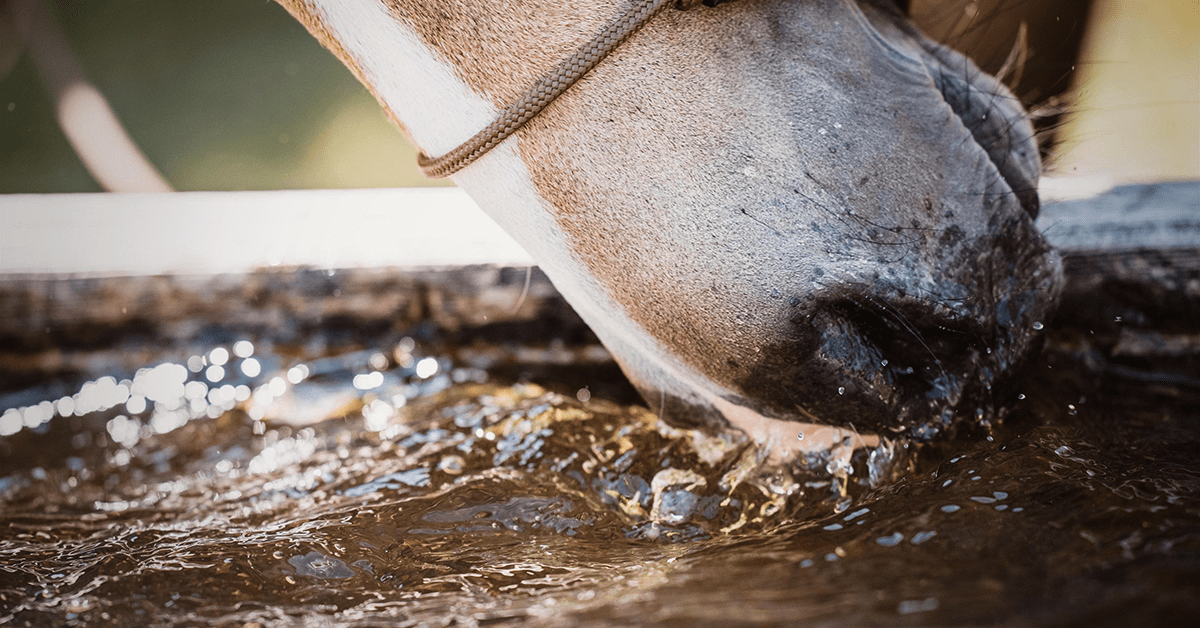
Common Dehydration Symptoms
- The Skin Pinch Test: Pinch a chunk of your horse’s skin at the base of its neck or chest. Hold it for 2-3 seconds. When released, the skin should immediately return to normal. If it doesn’t, then there is reason for concern. This lack of elasticity can be a sign of dehydration.
- Respiration & Heart Rate: Know your horse’s normal vitals! An unwell horse will have shallow and rapid breathing. The average breathing rate for a healthy horse is between 8-12 breaths a minute. The average resting heart rate is 32-42 beats per minute. One above 60 beats per minute can be a warning sign.
- Gum Color: Check your horse’s gum by pressing firmly above its front teeth. The skin will lighten in color as you press down. Once released, the color should quickly return to a normal pink hue. Furthermore, gums that are very red can indicate an issue.
- Urine Discoloration: Your horse’s urine will be dark if they’re dehydrated. In advanced stages, they do not produce any urine at all.
- Lethargy: If your horse is acting quieter than normal, then something could be wrong. These horses may not eat, stand-alone, have a lowered head and droopy lip, and seem sluggish.
- Bloodwork: Your veterinarian can perform a blood test to monitor proteins in the plasma and red blood cells. This is the best and truest way to diagnose dehydration.
Some of these symptoms like an elevated heart rate can be related to other issues, so don’t immediately assume dehydration. Generally, they do suggest some sort of problem and your horse should be elevated regardless.
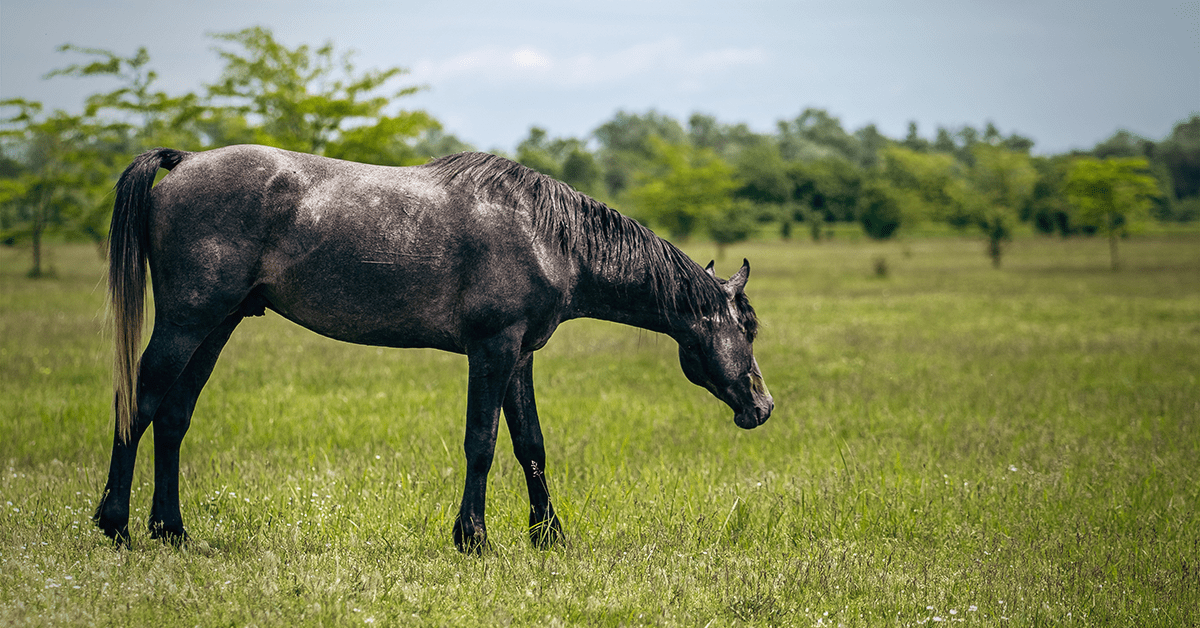
What Causes Dehydration?
Your horse is more likely to experience this condition in the summer months when temperatures are high. When they sweat, their body loses electrolytes. They need to consume a greater amount of water to replenish themselves. This is why the best prevention is offering clean water at all times!
RAMM offers the Ultimate Drinking Post Waterer. These are non-electric and frost-free. The water will be clean and 50° year-round. They’ll save you time and effort on refilling and cleaning buckets. You can rest assured your horse will have good water throughout the day.
Traveling can also put a horse at greater risk of dehydration. They may be too stressed to drink or picky about their water taste. It’s best to bring water from home when you know you’ll be gone all day. Electrolytes can be given in paste form to encourage consumption.
It’s a great idea to offer your horse access to salt. This will urge your horse to drink more water throughout the day. The average horse will need nearly 2 ounces of salt daily.
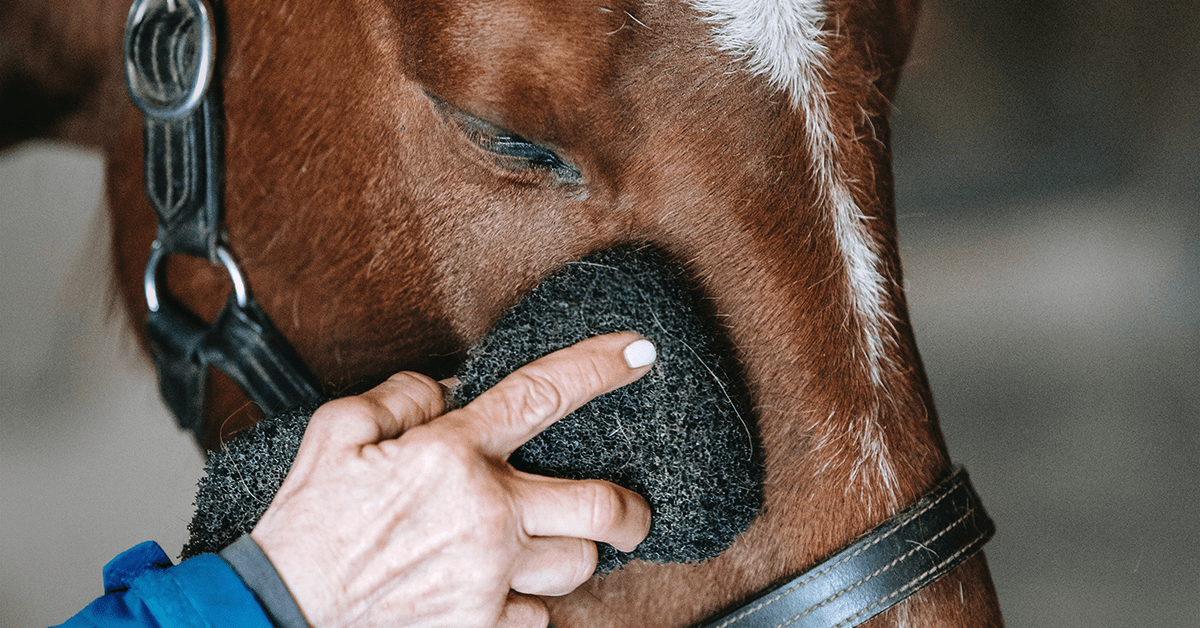
Treatment
If your horse is overheated from exercise or the weather, start by cooling them down. Hose them off and remove access water with a sweat scraper. Offer them fresh, cool water and keep them in a shaded place.
In more severe cases, contact your vet immediately. They can do an IV treatment with saline and other fluids to rehydrate them.
The best dehydration solution is prevention! On these hot, unbearable days, make sure you’re keeping an eye on your horse. They’ll need some extra attention!
Enjoy this blog post? We think you may like The Best Non-electric Fresh Water Source for Horses.

